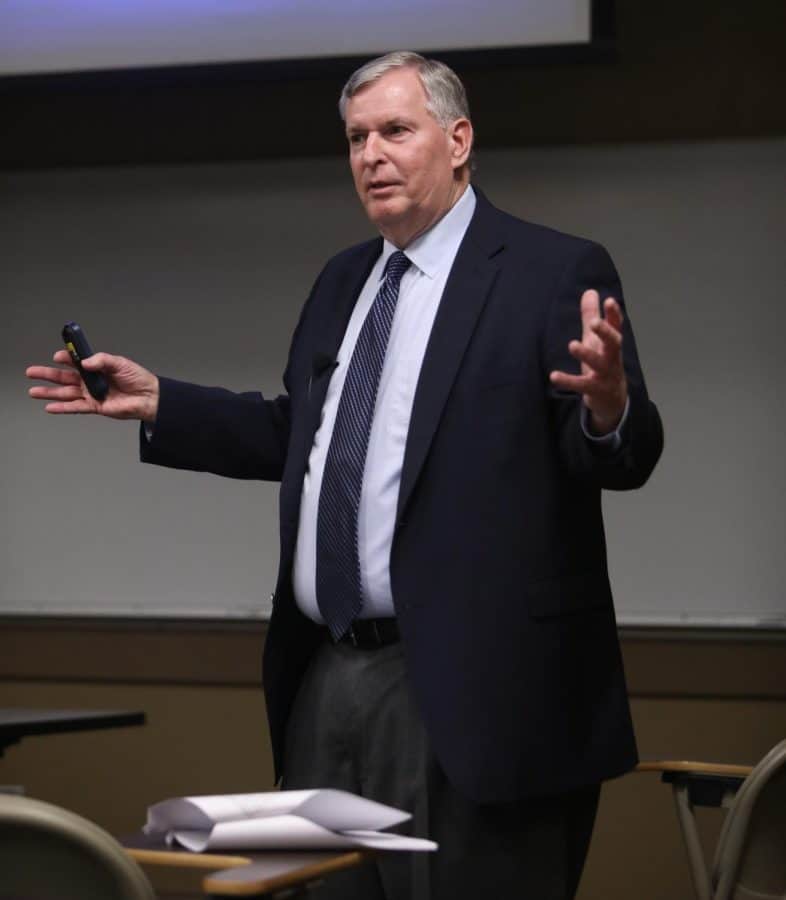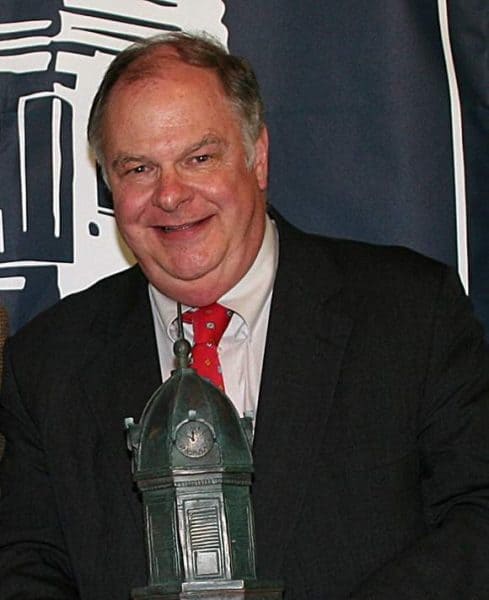Former mayor and Marine Greg Ballard speaks on alternative energy
February 26, 2019
Greg Ballard, who finished his second term as mayor of Indianapolis on Jan. 1, 2016 and served as a Lieutenant Colonel in the U.S. Marine Corps, came to The University of Alabama to speak on his new book “Less Oil or More Caskets” on Feb. 18.
The book summarizes the message that international patronage of the Middle East for oil is both directly and indirectly funding terrorism around the world, and that the only way to stop this problem is to look for and invest in alternative energy sources.
“Why are we still in the Middle East?” Ballard asked. “Why are we still there? Trillions of dollars spent, thousands of lives lost. Since the Brits moved out in the early 1970s, we moved in to fulfill this mission. We have spent tens of billions of dollars annually to make sure that the entire world gets oil.”
Throughout the talk, Ballard corrected misconceptions and presumptions of the American people. He started off by saying there are two costs of dependence on the Middle East for oil: one being the lives lost by maintaining U.S military presence there, and the other being the fact that this indirectly makes gas cost more.
“We pay $3 to $4 at the pump,” Ballard said. “That’s not the real cost of that. The real cost is probably $7 to $8. You’re paying it. You’re not paying it at the pump. You’re paying it with your tax dollars.”
Ballard walked his audience through a history of presidential promises to become independent of the Middle Eastern oil market, and he showed that from the moment President Jimmy Carter promised to never be so dependent on the Middle East for oil again, the U.S. in fact went in the opposite direction.
“Dependence on oil went up from 28 percent to 60 percent,” he said. “That’s what happened. Despite the oil embargoes, despite the terrorist incidents, despite the Gulf War, despite 9/11, we actually increased our dependence on oil.”
Now, even though the U.S. is less dependent on the Middle East for oil, the rest of the world has taken its place. From 2003 to 2013, the percentage of the world’s oil that the U.S. consumed went down, but the percentage consumed by other countries, specifically China and India, went up.
“Right now you are hearing we’re producing so much oil that we don’t need anything else,” Ballard said. “That is completely wrong. Seventy-seven percent of the oil in the world goes to Asia, and that money Asia sends, hundreds of billions of dollars, back to then fund terrorism. What does producing more oil out of Texas do? Nothing.”
The world dependence on oil is what demands the greatest expenditure on the U.S., not the direct patronage of the Middle East for its oil. The solution then, Ballard said, is not any kind of military victory, but a market victory.
Ballard showed that 90 percent of the transportation industry relies on the use of oil, and it is the industry that uses the most oil. Therefore, he said a revolution in energy technology is what will free the rest of the world from dependence on the Middle East for oil and will also restrain terrorism.
While the transition from oil to electricity in powering transportation is imminent, each person should do all they can to speed it up, he said.
Ballard said he read an article about predictions of the peak dependence on oil, after which the world economy would begin its downward trajectory of oil consumption.
“Last year they thought that year was going to be 2040,” he said. “Now it’s 2035. I’m hoping to bring that down much faster than that.”
The faculty member moderating this talk was Darrin Griffin, assistant professor of communication studies, who spoke after Ballard’s talk. He pointed out the theme of unintended consequences in Ballard’s speech and their parallels in the realm of communication studies.
He used Harold Innis as an example, a political economist credited with starting the University of Toronto’s communications school and inspiriting its philosophy.
“Harold Innis was responsible for the idea of Staples Theory,” Griffin said. “And that is the idea that the commodities of Canada, that is the fur trade and the way that they used their transportation, actually drove their political economy and their own culture. So, the type of person that they were was actually driven by these commodities that they were moving around.”











